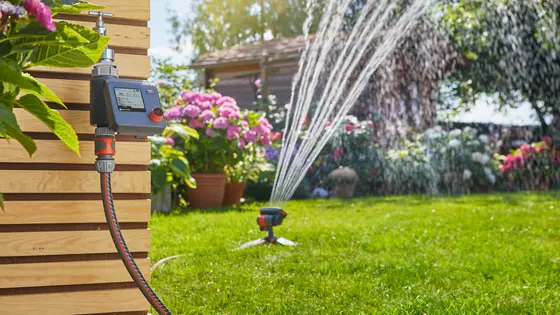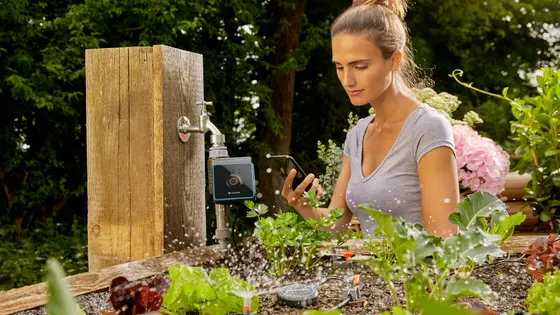
10 golden rules for watering
- Discover
- Gardening inspiration
- Magazine
- 10 golden rules for watering
To prevent your plants from wilting this summer, they need plenty of water. But how much and how often should you be watering? Here are some golden rules that you should consider when watering your plants.
Most plants depend on even moisture. However, slight drying out before watering promotes root growth of the plants.
In the flower bed, one to two watering sessions per week are usually sufficient: better to water less often but with plenty of water rather than a little water often.

Watering the garden is best done first thing in the morning when the water has the best chance of soaking into the ground before the heat of the day evaporates it away. You can also water in the evening but the drawback is that damp conditions can linger longer thereby increasing the risk of fungal diseases. If it is the only time you have to water then do so because it is better than no water at all.
Wet leaves become diseased leaves. Leaves that are made wet while the sun is shining on them develop slight burn marks (from the burning glass effect of the water droplets). If kept wet overnight, leaf-mould diseases may develop.

Proper watering means that the water has sufficiently reached the roots. If the amount of water is too low, it will only wet the upper soil. In the case of crop plants, adequate watering also means that they receive even soil moisture during the time before their crops are ripe for harvesting.
Water needs a moment to seep into the soil, especially when it is very dry. Before losing precious water by it flowing away uselessly over the soil, it is better to water in short burst repeatedly to allow the water to soak in completely.
Always watering in the same spot leads to one-sided root growth which then will lowers the soil area where nutrients can be absorbed. To encourage the roots to establish themselves all around the stem of the plant, always water around its circumference and distribute water evenly throughout its allocated area.

Water as much as needed but as little as possible. This is made easy with a Water Computer which will let you closely control your watering schedule and allow you to water when it is ideal but perhaps not manually convenient (early morning for example). For more complex gardens, an Automatic Water Distributor can be set up to irrigate up to six different areas independently.
Waterlogging suppresses the breathing air of the roots within the soil – the root cells drown without oxygen. Take special care with clay and compact soil.
Planting with quality soil will ensure better expanding properties and therefore water will be held in the soil more efficiently and evenly. Always keep a close eye on water drainage to avoid waterlogging.

